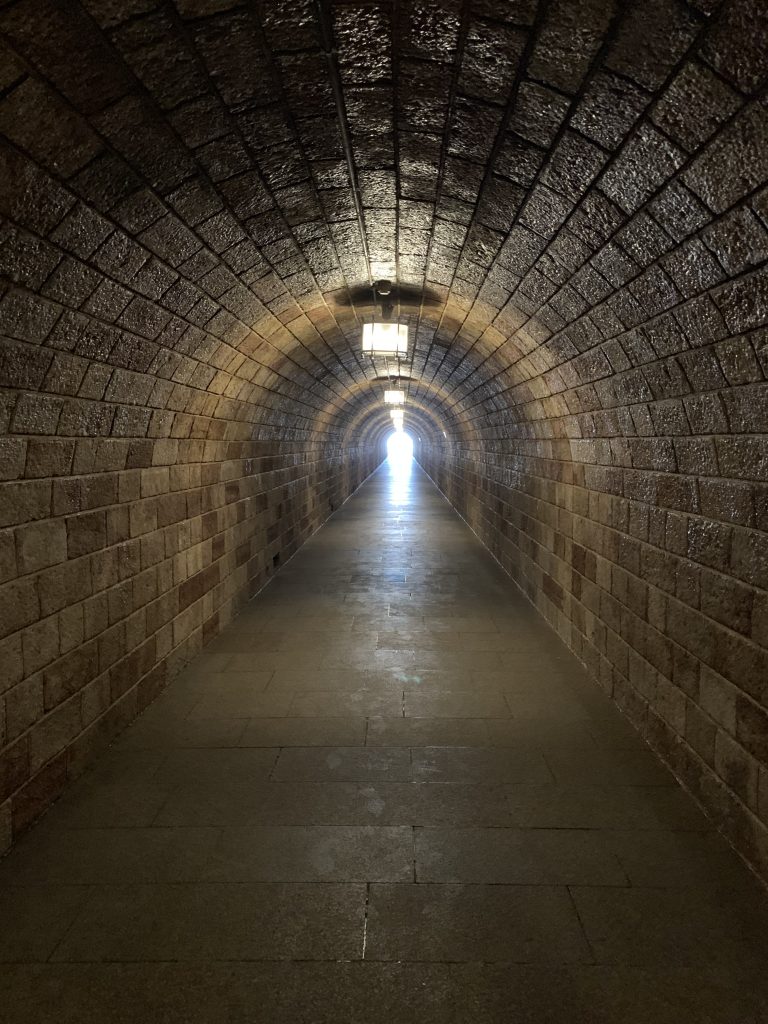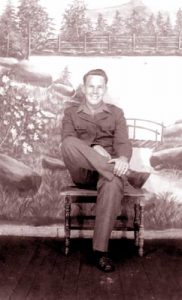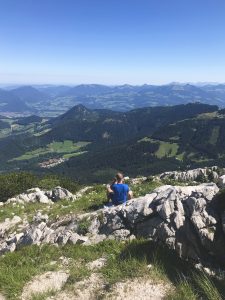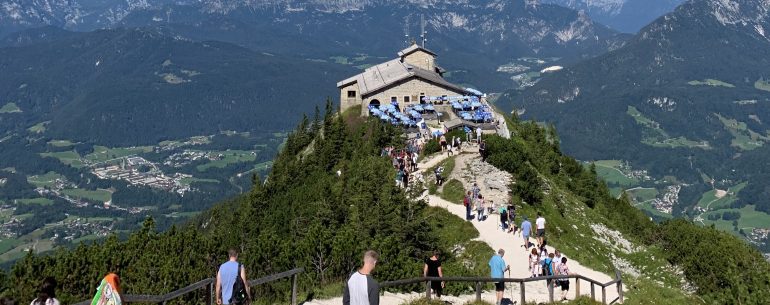In 1945, near the end of World War II, there were two prizes yet to be captured by Allied Forces. One was Berlin, controlled almost entirely by the Soviet Union; the other was Berchtesgaden, home to Adolf Hitler’s famous mountain lodge, Eagle’s Nest.
Many of Hitler’s plans to take over the world were made in Berchtesgaden. He was first inspired by the area near the Austrian border in the 1920s. Newly released from prison, he checked into a hut in the Bavarian town to finish writing his manifesto, Mein Kampf.
Eagle’s Nest was a 50th birthday gift to Hitler from his architect, Martin Bormann. It was intended to be a refuge of last resort should Hitler need it. During World War II, the mountain retreat atop an alpine peak was used exclusively by members of the Nazi party for government meetings and lavish parties.
Near the end of the war, every Allied Unit in the area, whether American or French, wanted to capture the prestige objective. Easy Company of the 101st Airborne Division was first to arrive at the crown jewel of Hitler’s evil empire. The scene is depicted in HBO’s Band of Brothers.
10,000 bottles of the world’s finest liquor, wine and champagne, helped Easy Company mark the day the war in Europe came to an end. – Narrator, Band of Brothers
There’s still evidence of war booty taken by the Allieds at Eagle’s Nest—much of the fireplace gifted Hitler by Mussolini has been chipped away—the spoils of war.
The Journey to Eagle’s Nest
You can’t drive up to Eagle’s Nest. The mountain road is too dangerous for regular vehicles. Constructed in 1938-1939, the road required 3,000 laborers working around the clock for thirteen months. Twelve men lost their lives during construction.
Hitler didn’t like traveling up the mountain because he was scared of heights. He thought the mountain road too dangerous. Consequently, he only visited Eagle’s Nest 14 times between 1938-1945.
Today, you can hike trails up the mountain to Eagle’s Nest. Just follow signs that say Kehlsteinhaus (teahouse in German). Be prepared for a steep climb that’ll take 2-3 hours. Or you can buy a bus ticket—buses are outfitted with special equipment that enable them to climb the steep mountain road.
Once you arrive near the top of the mountain, you enter the same long tunnel to the same gold-plated (brass polished) elevator Hitler used to visit Eagle’s Nest. In addition to being scared of heights, Hitler also feared getting stuck in the high-speed elevator, which ascends over 400 feet to the mountain’s peak.

High in the Bavarian Alps
The panorama from Eagle’s Nest rivals anything I’ve seen in the world, including Cape Town (South Africa), Patagonia (Argentina) and New Zealand.
Outside the lodge, a path just past the beer garden terrace leads to a higher point marked by a cross. From there you can take the iconic photo of the chalet.
Jagged mountains can be seen in all directions. Looking down, you’re seeing over both Germany & Austria. When the weather cooperates, you can see Salzburg. In the east you see the edge of Lake Königssee (King’s Lake).
Inside Kehlsteinhaus is the famed fireplace. Here you can have a drink in the same spot where Hitler, Eva Braun and Heinrich Himmler entertained foreign diplomats.
A Hero’s Journey
I took time for myself at Eagle’s Nest. I thought about my late friend, Mr. Joe Englert, who was wounded by German gunfire and taken prisoner of war in Germany. In a just world, he would’ve received the same adulation in his lifetime that is heaped on celebrities.
Mr. Joe was my grandma’s companion at the end of his life. He and I had a friendship that lasted four or five years before he died. As a member of The Greatest Generation, it took him 60 years to tell his war story.
“I saw a German grenade (potato masher) come through the opening. I yelled grenade and ran away from it. I ran right into another that came in through another opening and was hit in the face. I put my hand up to my face and could feel my right eyeball and said to myself ‘There goes my eye.’ Just about then another grenade exploded behind me hitting me in the back. It hurt like hell and I looked down at my chest expecting the shrapnel to come through. My ears were ringing and I started saying an Act of Contrition thinking that this was it. I was going to die.” – Joe Englert, 3rd Infantry Division, Co. E., 2nd Battalion, 7th Regiment

Mr. Joe expressed joy and gratitude for life every time I saw him. He had an older man’s voice—wavering and shaky.
He liked to tell me, “I feel like the luckiest guy in the world.”
I’d say, “Why is that, Mr. Joe?”
“Because, you know if Truman didn’t drop that bomb,” he’d say, “I don’t think I’d be here talking to you.”
At the time he was released from a German POW camp in 1945, American forces were still engaged in battles on remote islands in the Pacific—he didn’t like his chances of surviving another brutal Theater of War.
God Bless America
Do you know that hair-on-the-back-of-your-neck standing sensation? It’s a glorious feeling I’ve come to realize is self-created. It’s the reaping, from the sowing, of taking a keen interest in people & places.
This was my last email exchange with Mr. Joe before he died:
Mr. Joe,
It sure was great seeing y’all a few weeks ago! To mark the 65th anniversary of D-Day, I printed out your story and read it all the way through. I’m going to staple it together and keep it on my bookshelf next to my book,The War. You have such an unbelievable personal story that you tell so well. I’m so glad you took the time to write it and make it available for anyone to read.
Date: Monday, June 8, 2009, 3:20 PM
Bradley:
Mr. Joe
I was asked to serve as a pallbearer at Mr. Joe’s funeral, a job for which I felt honored but unworthy. Twice that day I felt the hair-rising sensation on my neck. The first was carrying the casket draped in the American flag; the second when taps was played.
Something I realized that day. I’d never met anyone as grateful as Mr. Joe. It was as if ghosts of the men who didn’t return home from the war nudged him every day to fully appreciate the life they were denied.
He, and men like him, risked everything 74 years ago so that we can have the freedom and opportunity we enjoy today—a freedom and opportunity I relished this week from Hitler’s crown jewel.




